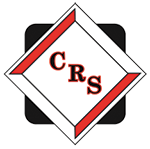In healthcare, managing patient data accurately and efficiently is vital for providing top-quality care. However, collecting and organizing this data is not easy. Hospitals and clinics often need help with the sheer volume of information they need to handle. This is where outsourcing data abstraction becomes a helpful solution. Let’s explore how outsourcing data abstraction can improve healthcare data quality and why it’s a smart choice for medical facilities.

What is Data Abstraction?
Data abstraction is the process of collecting, organizing, and summarizing important information from medical records. This data can include patient demographics, treatment details, and outcomes. It’s used for many purposes, such as quality improvement, clinical research, and meeting registry requirements. In cardiac care, for example, data abstraction may involve recording patient outcomes after heart surgery or tracking follow-up visits. Doing this manually can be overwhelming and prone to mistakes, which is why many healthcare providers choose to outsource this task.
Why is Accurate Data Important?
Accurate data is essential in healthcare for many reasons. Doctors rely on this information to make informed decisions about patient treatment. For example, if a doctor knows a patient’s complete medical history, they can choose the best course of action. Accurate data is also crucial for hospitals to meet regulatory requirements and maintain their reputation. Errors in data can lead to incorrect treatment, missed opportunities for improvement, and even financial penalties.
Why Choose Outsourcing Data Abstraction?
Outsourcing data abstraction can be beneficial in several ways. It involves hiring external experts to handle the data collection and organization process. Here’s how this approach can help:
Improves Data Accuracy
Outsourcing data abstraction to a specialized service like Cardiac Registry Support ensures that data is collected and recorded correctly. Professional data abstractors are trained to extract relevant information from complex medical records accurately. They understand medical terminology and know precisely what to look for in patient files. This reduces the risk of errors that can happen with in-house data entry. When the data is more accurate, doctors and healthcare providers can trust the information they use to treat patients.
Saves Time and Resources
Healthcare staff are already busy with many responsibilities, from patient care to administrative tasks. Adding data abstraction to their workload can be too much to handle. Outsourcing data abstraction allows staff to focus on what they do best—caring for patients. It also saves time that would otherwise be spent on training and overseeing data entry work. For hospitals and clinics, this can lead to a more efficient workflow and better use of resources.
Ensures Compliance with Regulations
Healthcare data must comply with strict rules to protect patient privacy and ensure quality reporting. Failing to meet these regulations can result in fines and damage to the hospital’s reputation. Professional data abstraction services are well-versed in these requirements. They know how to collect and submit data in a way that meets all legal and quality standards. This helps healthcare facilities avoid costly mistakes and ensures that they are always in compliance with the necessary guidelines.
Improves Patient Care
High-quality data leads to better patient care. When doctors have access to accurate and well-organized data, they can make more informed decisions about treatment. For example, knowing a patient’s history of heart disease or previous treatments can help a doctor recommend the right procedures or medications. By outsourcing data abstraction, healthcare facilities can ensure that their data is reliable and up-to-date, leading to better care and outcomes for patients.
Cost-Effective Solution
Hiring and training in-house staff for data abstraction can be expensive. There are costs associated with salaries, training, and maintaining the necessary technology and software. Outsourcing data abstraction is a cost-effective solution that eliminates the need for additional staff and resources. Companies like Cardiac Registry Support offer affordable packages tailored to the needs of different healthcare facilities. This makes it easier for hospitals and clinics to manage their budgets while still ensuring data quality.
Reduces Stress for Healthcare Staff
Healthcare professionals are under a lot of pressure to provide the best care possible. Adding data management tasks to their responsibilities can increase stress and burnout. By outsourcing data abstraction, hospitals can lighten the load for their staff. This not only improves job satisfaction but also allows medical professionals to dedicate more time and energy to their patients.
Increases Efficiency
Outsourcing data abstraction streamlines the data management process. External experts are trained to handle data efficiently, ensuring that everything is organized and submitted on time. This reduces delays in data processing and helps healthcare facilities run more smoothly. With better data management, hospitals can focus on improving patient care rather than getting bogged down by paperwork.
How Cardiac Registry Support Can Help
Cardiac Registry Support specializes in providing high-quality data abstraction services for healthcare facilities. Their team of experts understands the challenges of managing clinical data and offers solutions that make the process easier. Here’s how they can help:
Tailored Services
Cardiac Registry Support knows that every healthcare facility has unique needs. They work closely with clients to provide customized data abstraction services that fit their specific requirements. Whether it’s a long-term partnership or a one-time project, they can create a solution that works best for your organization.
High Accuracy Rates
Cardiac Registry Support has a proven track record of delivering accurate data. They achieved a 97.3% Inter-Rater Reliability (IRR) across all registries in 2023. This high accuracy rate means you can trust that the data they provide is reliable and meets all necessary healthcare standards.
Comprehensive Support
In addition to data abstraction, Cardiac Registry Support offers a range of other services, including data audits, robotic process automation, and analytics. Their comprehensive support helps healthcare facilities not only collect data but also make sense of it. By providing insights and identifying trends, they help healthcare providers improve patient care and operational efficiency.
Training and Education
Cardiac Registry Support also provides training services to help healthcare staff improve their data abstraction skills. This ensures that even when the staff handles data on their own, they do it accurately and efficiently. Proper training can prevent errors and improve the quality of the data collected.
Making the Right Choice for Your Facility
Choosing to outsource data abstraction is a big decision, but it can have a positive impact on your healthcare facility. It can save time, reduce errors, and improve the overall quality of care you provide. With companies like Cardiac Registry Support, you get professional help that fits your needs and budget. Their expertise in managing clinical data can help your hospital or clinic run more smoothly, allowing you to focus on what’s most important—caring for your patients.
If your healthcare facility is struggling with data management, consider outsourcing data abstraction to experts. It’s a cost-effective solution that can lead to better data quality, improved patient care, and a smoother workflow. Contact Cardiac Registry Support today to learn more about how their services can benefit your organization.
Outsourcing data abstraction is not just about managing data; it’s about improving the entire healthcare process. When data is handled correctly, it can lead to better patient outcomes, more efficient hospital operations, and a stronger reputation for your facility. Make the smart choice for your healthcare organization and explore the benefits of outsourcing data abstraction today.


